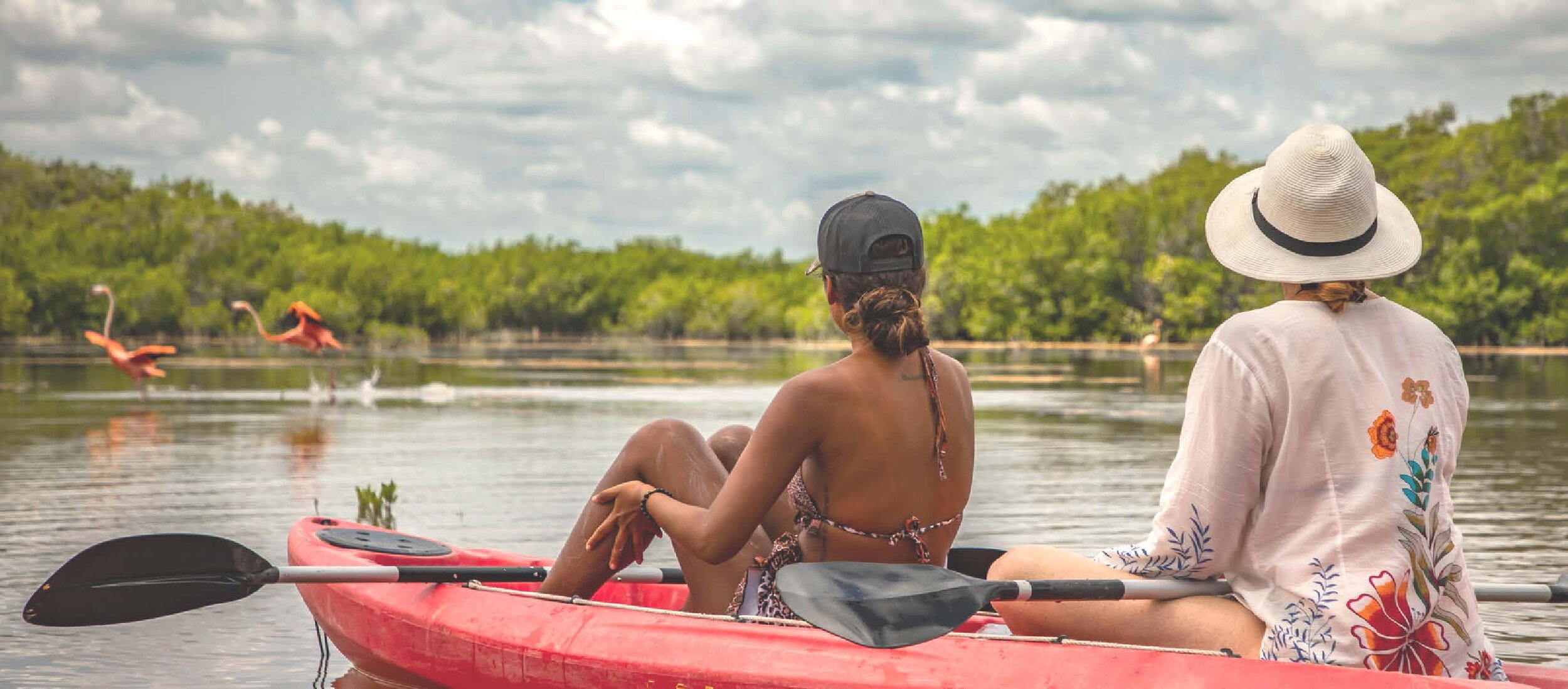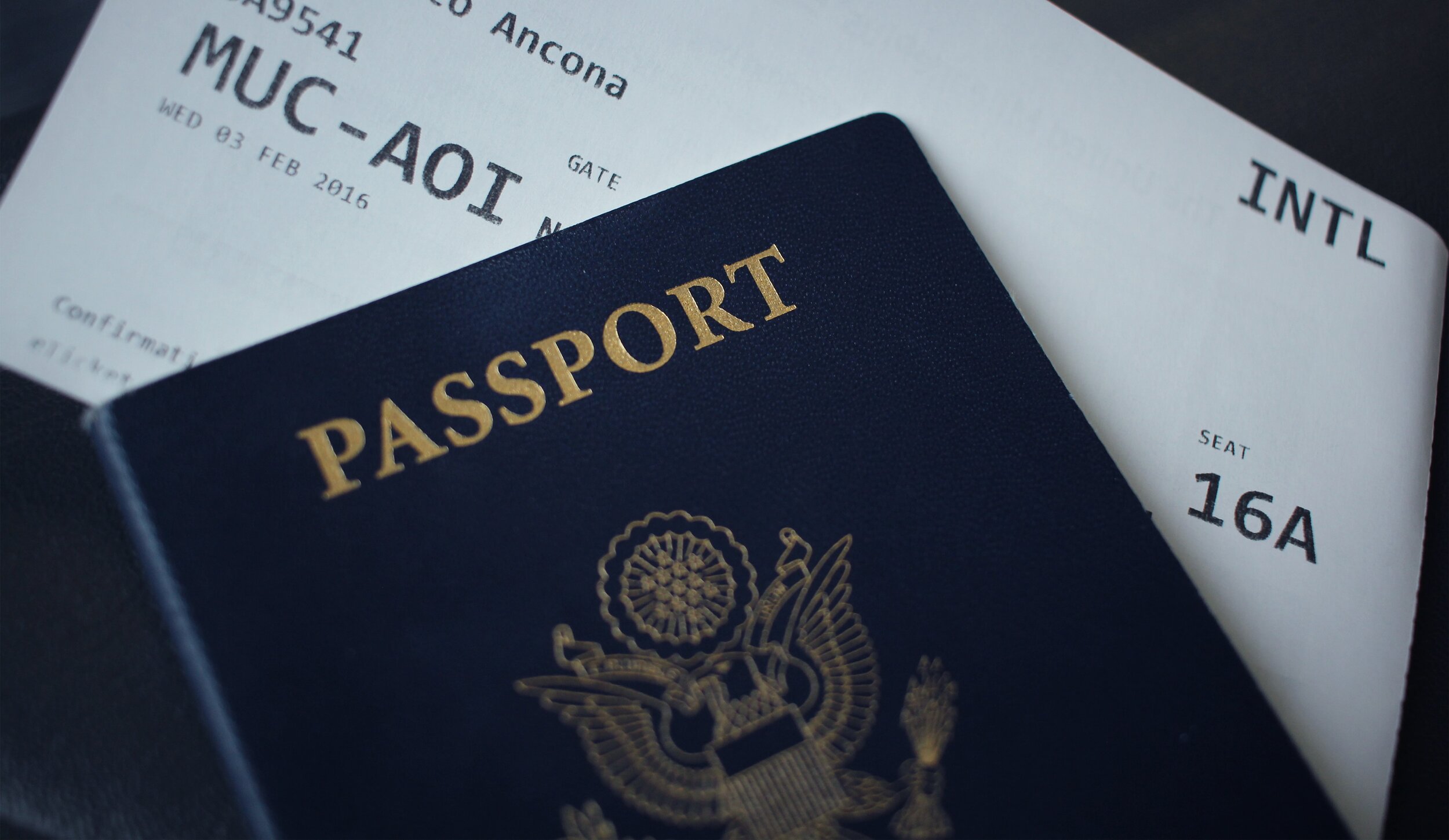Written ByRiva Bacquet, COO, SA Expeditions

Photo Courtesy of Riva Bacquet and SA Expeditions.
We’ve compiled a handy list of powerful tips that any traveler – yes, even you! – can follow to reduce your environmental impact as you embark on your next big adventure.
Download this entire article in a printable document, courtesy of SA Expeditions here. Here's the harsh truth: any amount of travel generates harmful carbon emissions that pollute the atmosphere. However, as staunch supporters of the human urge to explore and learn, we believe the net positives of travel can outweigh the negatives. Regardless, we vehemently urge any traveler to adopt these ecofriendly habits while expanding their horizons through travel:#1: Opt For Direct Flights

Photo by Nicole Geri on Unsplash
Did you know planes generate the most carbon during the landing and takeoff cycles?
By purchasing direct flights instead of routes with connections, you can significantly reduce your carbon footprint. We understand that, somewhat counterintuitively, flight reservations with multiple connections are often more economical than direct flights.
However, when you consider the potential impact of missed connections (including lost luggage, cancelled flights, and unsatisfying airport hotel stays while you miss the first day of your tour) and the additional carbon generated by these reactionary measures, the sometimes-elevated cost of direct flights begins to look a lot more appealing.
#2: Offset Your Carbon
All our trips are carbon neutral, meaning we offset the carbon produced by the flights included in our clients’ travel packages. If you’re interested in offsetting the carbon generated by your international flights, or perhaps giving someone the most unique and sustainable gift ever, check out the Offset Store managed by our partners at Carbon Credit Capital.#3: BYO(r)B — Bring Your Own (reusable) Bottle

Photo by Alexandra Tran on Unsplash
According to earthday.org, humans across the globe buy single-use plastic water bottles at the appalling rate of approximately one million bottles per minute.
In the US, only about 23% of these are recycled – less than a quarter – and many other parts of the world don't have the infrastructure or capacity to recycle plastic. This means at least 77% of these bad boys end up languishing for centuries in landfills, or worse yet, clogging up the ocean (see Great Pacific Garbage Patch for a dramatic visual).
Bringing your own reusable water bottle when you travel, and consciously choosing not to use the complimentary plastic bottles left in your hotel rooms, is the equivalent of saving up to 156 bottles per person annually – when you add up all the travelers in the world, that's a lot of bottles.
#4: Beeline For The Bars — Bar shampoo, that is.
According to the World Wildlife Foundation, it takes 450 years for plastic bottles to decompose, so when paired with the fact that most commercial shampoo bottles contain little more than water, switching to bar shampoo is both a logical and impactful swap. Once relegated to the realm of specialty shops and your weird soapmaking neighbor, bar shampoos are now mainstream enough they're available in places like Target and Amazon (though our favorites come from Canadian brand Lush or New York-based Package-Free Shop. And don’t forget, bar shampoo is carry-on friendly!#5: Say "No, Thanks" To Housekeeping

Photo by Ashwini Chaudhary on Unsplash
You've probably seen the notices in hotel rooms pledging eco-friendly practices, such as changing sheets and towels only upon request, yet fluffy new towels magically seem to sprout on the racks when you return to your room.
According to the EPA (Environmental Protection Agency), roughly 16% of any given hotel's water usage goes to laundry operations, and a study on hotel water conservation commissioned by Seattle Public Utilities claims that luxury hotels consume anywhere between a staggering 100 and 400 gallons of water per day per room.
Our simple fix to drastically reduce your water consumption while traveling? Place the "do not disturb" sign on your doorknob as you leave your room for the day's adventures, and forego the housekeeping linen service entirely.
Simple as pie!
#6: Be Considerate Of Local Communities
Travel expands horizons. It foments memorable intercultural exchanges and can be profoundly impactful for both travelers and hosts. However, it's imperative to be aware of the inherent privilege associated with international travel and the potential harm we may cause in our wake – especially when visiting regions that have differently-developed infrastructures than what we're used to. Choose your destinations thoughtfully and consider custom, privately guided travel over large group tours to support more fluid and authentic engagement with other people while abroad.#7: Support Local Economies

Photo by Arthur Franklin on Unsplash
Reject bulk-made goods or anything with a "made in China" sticker on it (unless, of course, you're traveling in China).
Instead, prioritize souvenirs like handmade goods by local artisans.
When deciding between the international department store or the local mom-and-pop establishment, opt for the latter.
#8: Prioritize The Well-Being Of Local Ecosystems
- Do not purchase any souvenirs that contain animal parts or endangered species, such as horns, furs, seashells, or coral trinkets. This tip directly aligns with the Core Principles of the "Leave No Trace" methodology: Leave what you find, and respect wildlife.
- Use reef-safe suncreen, like fellow B Corp Badger Balm.
- Bring a reusable tote bag (or purchase a fun souvenir tote), so you can confidently reject single-use bags from street vendors, shops, and souvenir stalls.
- If you're road-tripping or renting a vehicle, use Google Maps' new fuel efficiency feature, which prioritizes routes that create fewer carbon emissions. This way, you'll reduce your impact on the quality of the air local residents will keep breathing long after you've returned home.
- Bring your own solar-powered device chargers. Using portable solar panels to charge your phone will not only prevent you from using precious local energy resources, it may save you from worrying about power adapters and converters. Simply hook the charger to your pack while hiking or find a sunny window at a café, and juice up your devices.
- Keep your devices on "airplane mode" whenever possible: international data plans generate a surprising amount of carbon emissions.
